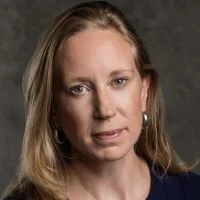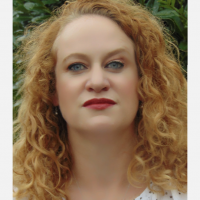Producer / Artist Toolkit, post by Caroline Pearce
In late 2020 at an online Producers networking event, organised by Daisy Hale and Benjamin Monks, I suggested something I’d been thinking and doodling about for a while, that instead of us as an industry trying to create a database of answers around what a Producer is and who is currently doing what work, that it might be easier to create a set of questions to empower Artists, Producers and anyone engaging a Producer to quickly get to the heart of what they need and find the right collaborators.
A group of brilliant Producers stepped up to work on it together; Emily Beecher, Kelly Golding, Vicky Graham, Nicola Lawton, and I created the following toolkit.
We’ve been delighted with how well the sector has received the document and are keen for others to use it however it’s most helpful, and build on it / develop it / make all our work more satisfying for the artists and ultimately the audiences.
What is a Producer and do you need one?
Following on from the work of the Freelance Task Force, a small group of Producers joined forces to try and define our role and also think up a way for Artists and Producers to get the most out of their working relationships. Below is a helpful tool that can be used by Producers and Artists alike to help determine what exactly they need for a particular project or production.
The definitions provided are by no means exhaustive and will carry different nuances across different sectors within the arts. Please feel free to use this document as best suits your needs.
Definitions
Producer: the person or entity legally and financially responsible for a production. These responsibilities include the time, money, team, venue and audience of a production. They begin at the very beginning of an idea and continue through to evaluating the project, archiving or disposing of its assets and overseeing and finalising the production accounts. They have an overall view of the entire production and bring varying degrees of creative, administrative and technical skill.
Important disclaimers / qualifiers:
In the subsidised sector, legal and financial responsibility may not lie with the person who holds the title of ‘Producer’.
On small projects, a freelance Producer or Artist might be responsible for raising, spending and reporting on the money and for recruiting and managing other individuals. It is extremely important to be clear about where the money is held, who enters into contracts and where the liability sits. If anything goes wrong, you will need to be prepared and protected.
On large projects, an organisation will usually be legally and financially responsible. They will delegate these responsibilities to individual staff / in-house Producers. If anything goes wrong, it is the organisation that bears the liability. In the case of charitable organisations and many other non-profits, there will be a Board of Trustees who bear the ultimate responsibility.
Tool Kit
We have drafted a paragraph below which you can use along with the list of questions which you are welcome to use as many or as few as you think fit what you’re looking to answer. You should fill in the [BLANK] sections with what is most relevant to your experience. We hope using this tool kit will help Artists and Producers determine what exactly they are looking for each project / production they are working on.
As Producers we are often approached by Artists to produce their work or project. This often comes in the form of a long email or conversation in which the Artists tells us everything they care about, barely taking a breath, then telling us how much they need help and they’re struggling with this or that.
It’s very tempting, as a Producer, to get right into the nitty gritty of those conversations, because it’s inspiring to be around someone who’s talking about a project they’re passionate about, and it’s a key skill of most Producers to want to help a person when they ask.
However, experience has taught us that there are much better ways to start a successful working relationship and if the above ever does work, it’s a lucky coincidence, it’s rare! What’s best is ensuring that you get the right Producer and collaborators for you, for this project, for this time – and that might be one person you work with for the rest of your career, or a series of different people for every single thing, or any other version. What we want to keep in mind is clarity of understanding, avoiding and unearthing all and any unspoken assumptions and making sure that everyone is clear about their own and other people’s drivers and boundaries, in order to get the best experience for the team making it and the audience afterwards.
“As a Producer, I am often approached by Artists asking me to produce their work or project. This often comes in the form of [BLANK]. My issue with this is [BLANK]. There seem to be some common misconceptions about the Artist-Producer relationship. As such, a group of Producers have come up with this list of questions to consider before approaching / recruiting for a Producer.”
What do you know about the Producer you seek?
Do you want a Producer?
How do you know?
Did someone tell you to get a Producer?
Did a Producer approach you and ask to work with you?
Have you been producing your own work?
Are there skills and experiences you want to bringing the development process of your own work that you know or guess that a Producer will have / be able to do better than you / have more time to focus on than you?
Do you make work alone?
Do you collaborate with a team?
Are you the lead maker?
Do you always work in the same way? Or different every time? Or a mix?
Do you want a Producer for a specific project?
Do you want a Producer for a specific time?
Have you got any money to pay a Producer?
What do you offer right now to a Producer?
What do you need your Producer to care about?
What do you want to know about a Producer?
What do you think the Producer wants to know about you / your work
How many producers would you like to get to know before choosing?
Do you want a producer to choose you or you to choose your producer?
Would you like to advertise and recruit on applications from Producers? If so, what do you think that would mean for the relationship going forward? If not, what do you think that would mean? Do you understand why advertising would or wouldn’t feel right for you?
Is there a Producer you know who you’d love to work with you?
Is there a Producer you don’t know who you’d love to work with you?
Your work…
● What sort of work do you make / do?
● Music / theatre / dance / outdoor events / events / gig theatre / ballet / contemporary /…
Your vision…
It’s always worth exploring the dream version for the project, so if the project has the chance to exceed expectations, everyone’s aware of what would be desirable and which opportunities to pursue. We also recommend doing this because it’s sometimes easy to embed assumptions at this stage about what is and isn’t possible, better to discuss the whole idea and opportunities openly to get the best working relationship – it’s all very well being on the same page, but no use if you’re in different books.
“If you still think I’m the right producer for you, please get in touch”
We hope that you find this tool useful to reflect on before approaching and or recruiting a producer for your project or production.
New for February 2021, see our companion piece on Finding the right producing project for you.
Download the pdf >
Finding-the-right-producing-projects-for-you_a-guide





